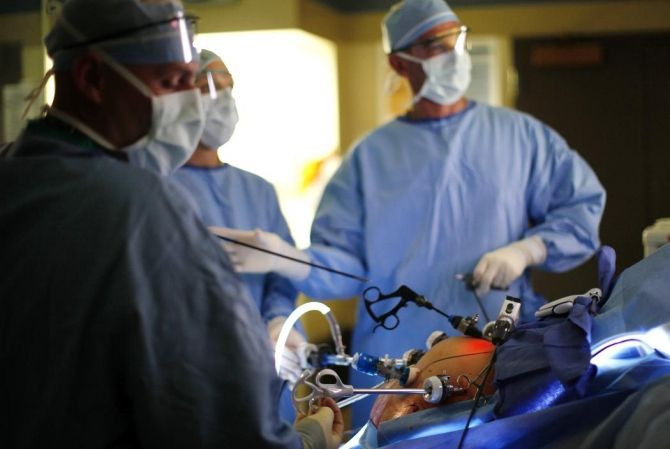Weight Loss Surgery Does Not Lead to Broken Bones

Bariatric surgery doesn't increase the risk of broken bones, at least not in the first five years after the surgery, a new study says.
Obesity increases the risk for many health complications like type 2 diabetes type and heart diseases. Previous research has shown that obese people have higher bone density and more protection around the bones that effectively lowers the risk of a fracture.
Studies have shown that weight reduction comes with a risk of reduced bone density.
The present study was based on the analysis of fractures that had occurred in people that had undergone bariatric surgery between 1987 and 2010. The rates of fractures were compared against a control group who never had a bariatric surgery. In total, 2,079 bariatric surgery patients' medical records were matched against 10,442 people in the control group.
Researchers found that people who had this weight loss surgery were at no increased risk of fractures for the first five years after the surgery. They, however, found that the risk of a fracture increased after five years and that people who had the greatest reduction in body mass index (BMI) after surgery.
"Obesity is an increasing public health problem worldwide, which affects between 15 and 20 per cent of Europeans; it has been recognized that surgical treatment is the most effective route to weight loss for many with morbid obesity. Overall, for the first few post-operative years, these results are reassuring for patients undergoing bariatric surgery, but do not exclude a more protracted adverse influence on skeletal health," Dr. Nicholas Harvey from the University of Southampton said.
Medical Daily had earlier reported that bariatric surgery could increase the risk of alcoholism and that weight loss can alter how the functions.
The present study is first to evaluate a relation between weight loss after bariatric surgery and risk of fractures.
"With increasing numbers of obese individuals in the UK, bariatric surgery is becoming more common and has been associated with a reduction in bone density after the operation. This is the first time that we have been able to investigate risk of fracture following bariatric surgery by comparing patients with non-surgical controls. The results suggest that, at least in the short term, such changes in bone density are unlikely to lead to increased fracture risk," Professor Cyrus Cooper, Director and Professor of Rheumatology, at the MRC LEU, added, according to a press release.
The study was published in the British Medical Journal.



























